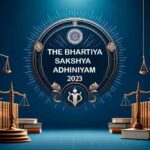Reportable
IN THE SUPREME COURT OF INDIA
CRIMINAL APPELLATE JURISDICTION
CRIMINAL APPEAL NO. 750 OF 2006
State of Rajasthan Appellant(s)
VERSUS
Firoz Khan @ Arif Khan Respondent(s)
J U D G M E N T
Abhay Manohar Sapre, J.
1) This appeal is filed by the State of Rajasthan against the final
judgment and order dated 28.10.2005 passed by the High Court of
Judicature for Rajasthan at Jodhpur in D.B. Criminal Leave to Appeal
No. 227 of 2005 whereby the Division Bench of the High Court dismissed
the application filed by the appellant herein seeking leave to file
appeal under Section 378(3) of the Criminal Procedure Code, 1973
(hereinafter referred to as “the Code”) against the judgment dated
13.08.2004 passed by the Sessions Judge, Jaisalmer in Sessions Trial
Case No. 48 of 2002.
2) Keeping in view the short point involved in the appeal, it is
not necessary to state the facts in detail except few to appreciate
the grievance of the appellant.
3) The respondent (accused) was prosecuted and tried for commission
of an offence of murder of one Liley Khan aged around 11 years under
Section 302 of the Indian Penal Code, 1860 (hereinafter referred to
as “IPC”) pursuant to lodging of FIR No 44/2002 in Police Station
Ramgarh, District Jaisalmer in Sessions Trial Case No. 48 of 2002 in
the Court of District and Sessions Judge, Jaisalmer. The prosecution
adduced evidence in support of their case.
4) By judgment dated 13.8.2004, the Session Judge on appreciating
the evidence adduced by the prosecution acquitted the respondent of
the charge of murder by giving him benefit of doubt.
5) The State of Rajasthan, felt aggrieved of respondent’s
acquittal, filed application for leave to appeal before the High Court
under Section 378 (3) of the Code.
6) By impugned order, the High Court declined to grant leave and
accordingly rejected the application made by the State. It is against
this order, the State has filed this appeal by way of special leave
petition.
7) Notice of lodgment of petition of appeal was served on the
respondent but despite service of notice, the respondent has not
appeared.
8) Heard learned counsel for the State of Rajasthan.
9) Learned counsel for the appellant-State has made only one
submission. According to him, the High Court while dismissing the
application for leave to appeal did not assign any reason and hence
the impugned order is rendered bad in law. It was his submission that
there were several discrepancies and errors in the judgment of the
Sessions Judge against which the leave to appeal was sought and,
therefore, this was a fit case where the High Court should have
granted leave to appeal for further probing into the case by the
appellate court. In support of his submission, he placed reliance on
the decision of this Court in State of Maharashtra vs. Sujay Mangesh
Poyarekar, (2008) 9 SCC 475.
10) We are inclined to agree in part with the submission urged by
the learned counsel for the appellant.
11) The question as to how the application for grant of leave to
appeal made under Section 378 (3) of the Code should be decided by the
High Court and what are the parameters which the High Court should
keep in mind remains no more res Integra. This issue was examined by
this Court in State of Maharashtra vs. Sujay Mangesh Poyarekar
(supra). Justice C.K. Thakker speaking for the Bench held in paras 19,
20, 21 and 24 as under:
“19. Now, Section 378 of the Code provides for filing of appeal
by the State in case of acquittal. Sub-section (3) declares that
no appeal “shall be entertained except with the leave of the
High Court”. It is, therefore, necessary for the State where it
is aggrieved by an order of acquittal recorded by a Court of
Session to file an application for leave to appeal as required
by sub-section (3) of Section 378 of the Code. It is also true
that an appeal can be registered and heard on merits by the High
Court only after the High Court grants leave by allowing the
application filed under sub-section (3) of Section 378 of the
Code.
20. In our opinion, however, in deciding the question whether
requisite leave should or should not be granted, the High Court
must apply its mind, consider whether a prima facie case has
been made out or arguable points have been raised and not
whether the order of acquittal would or would not be set aside.
21. It cannot be laid down as an abstract proposition of law of
universal application that each and every petition seeking leave
to prefer an appeal against an order of acquittal recorded by a
trial court must be allowed by the appellate court and every
appeal must be admitted and decided on merits. But it also
cannot be overlooked that at that stage, the court would not
enter into minute details of the prosecution evidence and refuse
leave observing that the judgment of acquittal recorded by the
trial court could not be said to be “perverse” and, hence, no
leave should be granted.
24. We may hasten to clarify that we may not be understood to
have laid down an inviolable rule that no leave should be
refused by the appellate court against an order of acquittal
recorded by the trial court. We only state that in such cases,
the appellate court must consider the relevant material, sworn
testimonies of prosecution witnesses and record reasons why
leave sought by the State should not be granted and the order of
acquittal recorded by the trial court should not be disturbed.
Where there is application of mind by the appellate court and
reasons (may be in brief) in support of such view are recorded,
the order of the court may not be said to be illegal or
objectionable. At the same time, however, if arguable points
have been raised, if the material on record discloses deeper
scrutiny and reappreciation, review or reconsideration of
evidence, the appellate court must grant leave as sought and
decide the appeal on merits. In the case on hand, the High
Court, with respect, did neither. In the opinion of the High
Court, the case did not require grant of leave. But it also
failed to record reasons for refusal of such leave.”
12) Coming now to the facts of this case, it is apposite to
reproduce the impugned order in verbatim infra.
“Heard.
No case for grant of leave is made out. Accordingly, the
leave to appeal stands dismissed.”
13) We are constrained to observe that the High Court grossly erred
in passing the impugned order without assigning any reason. In our
considered opinion, it was a clear case of total non application of
mind to the case by the learned Judges because the order impugned
neither sets out the facts nor the submissions of the parties nor the
findings and nor the reasons as to why the leave to file appeal is
declined to the appellant. We, therefore, disapprove the casual
approach of the High Court in deciding the application, which in our
view is against the law laid down by this Court in the case of State
of Maharashtra vs. Sujay Mangesh Poyarekar (supra).
14) In the light of foregoing discussion, the impugned order
deserves to be set aside. The appeal thus succeeds and is accordingly
allowed and the impugned order is set aside. The case is
remanded to the High Court for deciding the application made by the
appellant for grant of leave to appeal afresh on merits in accordance
with law keeping in view the law laid down by this Court in State of
Maharashtra vs. Sujay Mangesh Poyarekar (supra).
15) It is made clear that we have not applied our mind to the merits
of the case and remanded the case having noticed that it was an
unreasoned order. The High Court will accordingly decide the
application on merits uninfluenced by any of our observations made in
this order.
16) Since the case is old, we request the High Court to decide the
matter within three months from the date of receipt of this order.
Since no one appeared in this Court for the respondent despite notice
to him, the High Court will issue a fresh notice of the application
for grant of leave to the respondent and then decide the application
as directed.
…………………………….J.[ABHAY MANOHAR SAPRE]
………………………………J.[ASHOK BHUSHAN]
New Delhi,
May 17, 2016.
Read Also: Case Brief – State of Rajasthan Vs. Firoz Khan @ Arif Khan






